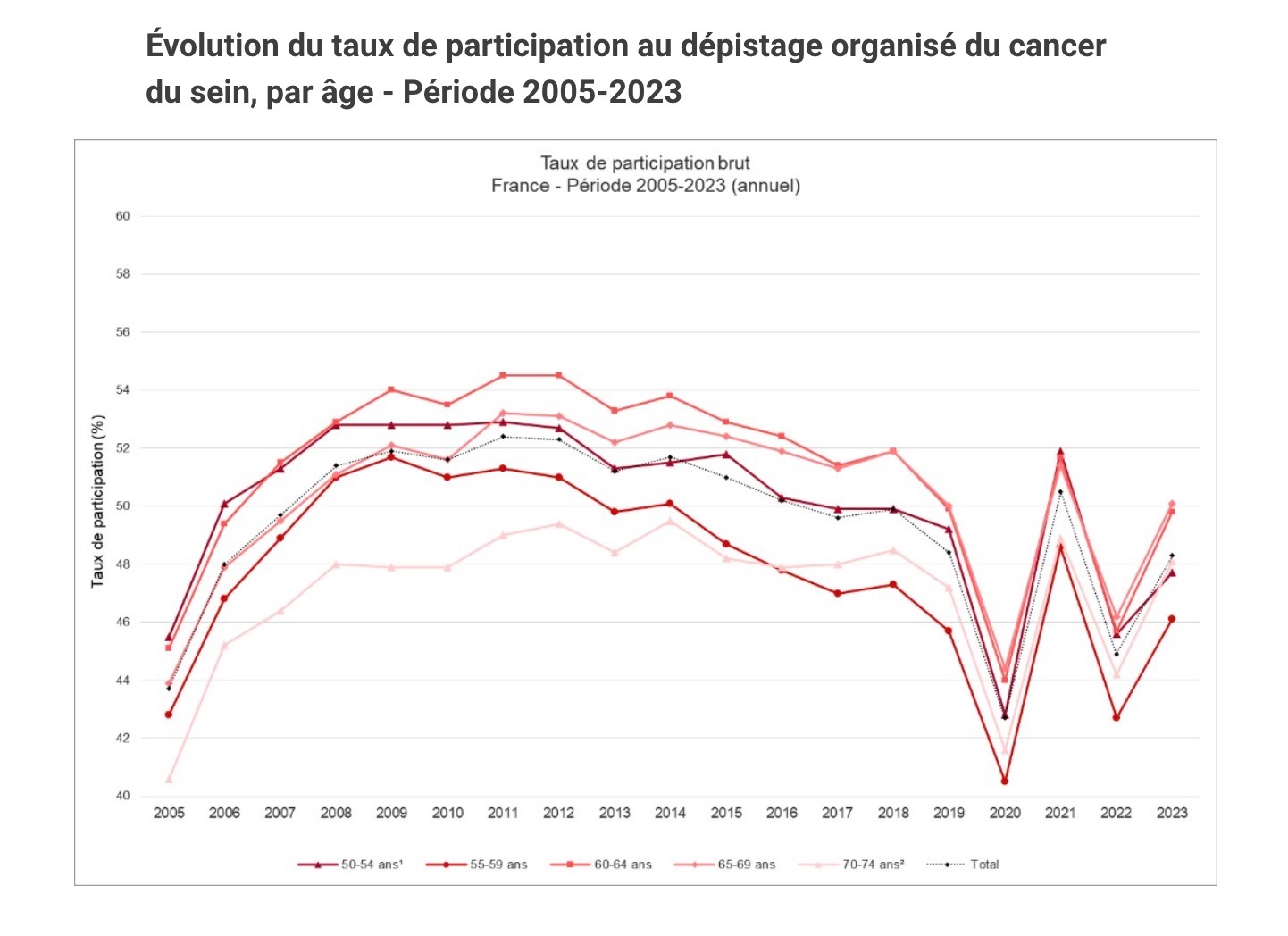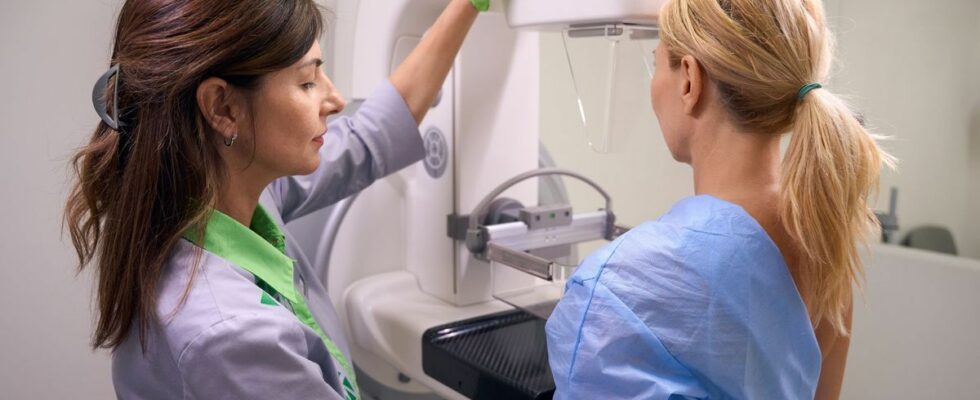Published on
updated on
Reading 3 min.
According to new data from Public Health France on organized breast cancer screening, the participation rate is not taking off. Worse, the trend has been downward for several years. Breast cancer is the leading cause of cancer death among women.
In France, organized breast cancer screening invites all women over 50 to have a free mammogram every two years. But in the middle of Pink October, Public Health France reveals that more than one in two women do not participate in this program! However, breast cancer still kills 12,000 people per year, even though if it is detected early, it can be cured in 9 out of 10 cases.
Organized screening in decline?
Public Health France has published the figures for participation in organized screening for the period 2022-2023 and its performance for the period 2019-2020. Organized screening invites women aged 50 to 74 to have a screening mammogram every 2 years to detect cancer at an early stage. It is completed by a clinical breast examination and concerns at least 10 million women.

Despite the number of invitations sent, the latest data shows a participation rate which remains low (46.5% over the period 2022-2023), and down compared to the previous period (47.7% in 2021-2022 ). That is less than one woman in two guests! More precisely, 2,620,500 women underwent an organized screening mammogram in 2023, representing a national participation rate of 48.2% (versus 44.8% in 2022). An increase in participation is therefore observed in 2023, but participation over the period of the two sliding years 2022-2023 remains lower than that of 2021-2022 which had experienced a catch-up effect linked to Covid.
In 2022-2023, the highest regional participation rates are observed in Burgundy-Franche-Comté, Normandy and Brittany; the lowest are observed in Guyana, Corsica and PACA. While the 2022-2023 rate is stable or decreasing compared to the previous period in most regions of mainland France, an increase is observed in Hauts-de-France.
This downward trend is worrying while at the same time, the cancer detection rate is steadily increasing, consistent with the observed trend in incidence in the general population.
Psychological and organizational obstacles?
How can we explain this apprehension, or this lack of response to invitations? Recent regional articles that we had already commented on at Doctissimo, mentioned at the beginning of the month a wait that was too long and too complicated to make an appointment for a screening mammogram (as part of organized screening).
The distance to a center is also another reason (even if mammobuses are sometimes set up to compensate for this lack).
According to the National Cancer Institute, there are also other obstacles to more personal screening, such as:
- The fear of cancer;
- Fear of the result;
- Inequalities in prevention;
- Lack of time.
Finally, Santé Publique France admits: “The decline in the supply of senology [spécialité qui étudie les maladies du sein]“which complicated the making of appointments and lengthened the deadlines, just like “the recurring controversy surrounding the effectiveness of this screening can partly explain this observation”.
The importance of participating in the organized screening program
However, when detected early enough, breast cancer is more likely to be cured. Six out of 10 breast cancers are diagnosed at an early stage.
Participating in organized screening also means benefiting from a quality organization and thus detecting a possible anomaly or cancer at an early stage, to limit treatments and thus increase the chances of remission.”Regular screening in this program of all women concerned would reduce mortality due to breast cancer.” ensures the institution.
Obviously, the slightest anomaly during a self-palpation for example, before the age of this organized screening, or outside of the invitations, must make you consult for a check.
